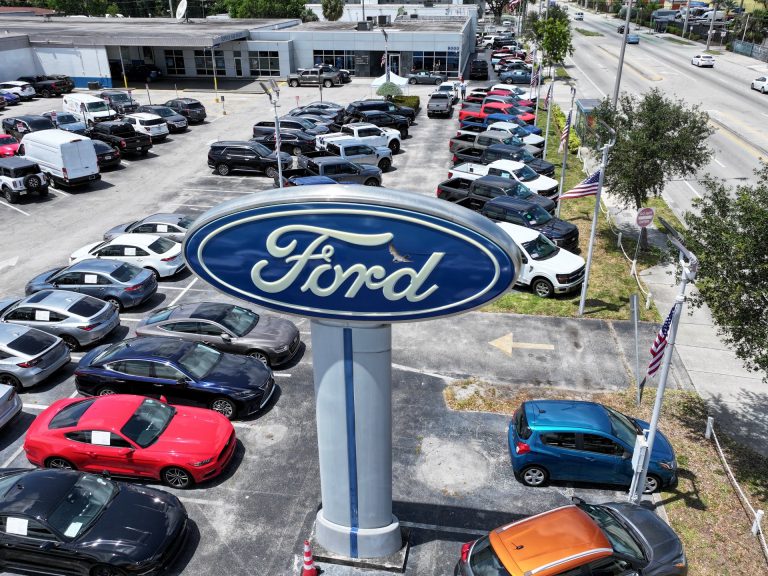The increased price tag is a result of Trump’s tariffs on auto imports which car companies ultimately will pass on to consumers for cars that will hit dealer lots in June.
Ford Motor Company has raised prices for three of its vehicles produced in Mexico, becoming one of the first major carmakers to adjust sticker prices following US President Donald Trump’s tariffs.
The new prices took effect on vehicles produced on May 2 or later, according to the news agency Reuters, which first reported the story on Wednesday.
Prices on the Mustang Mach-E electric SUV, Maverick pick-up — one of its most affordable and popular vehicles— and Bronco Sport will increase by as much as $2,000 on some models, according to a notice sent to dealers, which was reviewed by Reuters. A Ford spokesperson said the cars with the raised price tag would arrive at dealer lots in late June.
Ford said the trade war would add about $2.5bn in costs for 2025, but it expects to reduce that exposure by about $1bn. General Motors said last week that tariffs were projected to cost it between $4bn and $5bn following the imposition of hefty levies on foreign imports of automobiles, but it expected to offset that by at least 30 percent.
Trump’s tariffs have unleashed weeks of uncertainty across the auto sector, as major carmakers in the United States and Europe have pulled forecasts, shifted production and caused companies to idle plants.
Following weeks of pushback from the auto industry, Trump softened his tariffs on foreign auto parts imports to give carmakers credits for what is produced in the US and to avoid double-tariffs on raw materials used in production. However, the White House has not rescinded a 25-percent tariff on the 8 million vehicles the US imports annually.
Ford is in a better position to weather tariffs than some of its competitors because of its strong US manufacturing base. The Dearborn, Michigan, automaker assembles 79 percent of its US-sold vehicles domestically, compared with GM’s 53 percent, according to an analyst note from Barclays.
Pricing pressure
Ford and GM also face significant levies on imports from China and South Korea, respectively. GM estimated that the costs on its Korean imports totalled about $2bn, while Ford declined to specify the expenses around importing vehicles from China.
Automakers that rely on exports to the US are facing increased pricing pressure. A dozen major carmakers, including Toyota and GM, import at least 40 percent of the vehicles they sell in the US, with some, such as Volkswagen and Hyundai Motor, importing more than 60 percent, according to 2024 data from S&P Global Mobility.
Before Ford’s move, most carmakers had not taken the step of boosting prices, but had warned that it was on the way. Porsche said it would have to boost its selling cost if tariffs remained in place, while US Volkswagen’s Audi brand also suggested potential price increases, without providing any details.
By contrast, BMW expects US car tariffs to decline from July, based on its contacts with US officials – a more upbeat assessment of the trade climate than many rivals. GM’s finance chief, Paul Jacobson, told analysts last week that the automaker was not expecting imminent price increases, saying they “feel good about where the pricing environment is today”.


